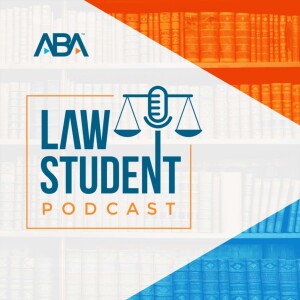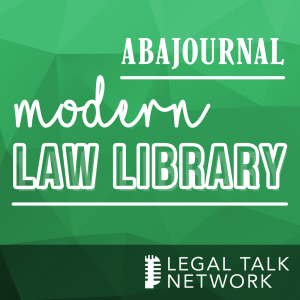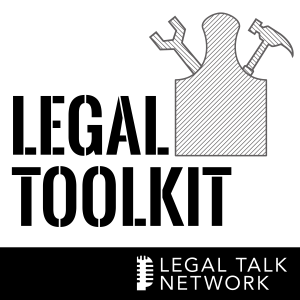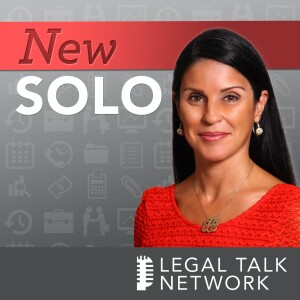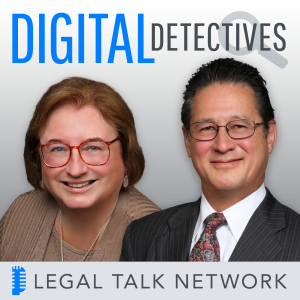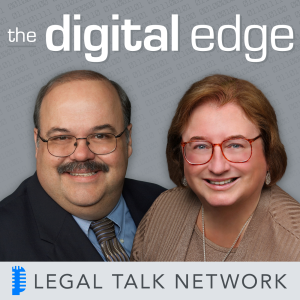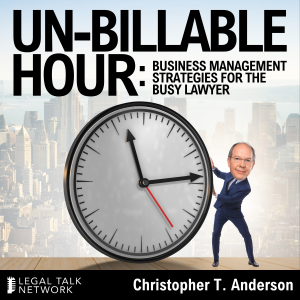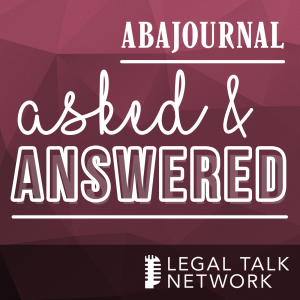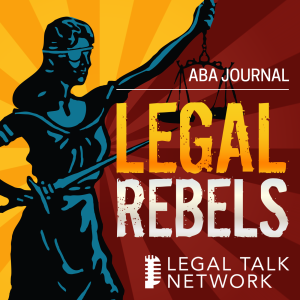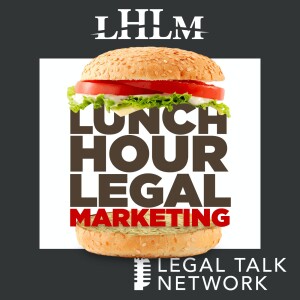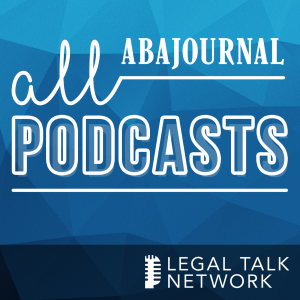

ABA Journal Podcasts - Legal Talk Network
https://feeds.megaphone.fm/LTN1223542566Episode List

How ethics reforms in Arizona led to LegalZoom's law firm
When Arizona changed its ethics rules in 2020 opening the door for alternative business structures and nonlawyer ownership for law firms, it sent shock waves throughout the legal industry. Nicole Miller, the chief legal officer of LegalZoom, speaks to the ABA Journal's Victor Li about LegalZoom’s experience in Arizona thus far, as well as general issues relating to regulatory reform and alternative business structures.

How a Florida murder and an unlikely justice created a ‘criminal procedure revolution’
In Chambers v. Florida and the Criminal Justice Revolution, historian and former ABA Journal reporter Richard Brust lifts the veil on a case that laid the groundwork for some much more famous civil rights victories. On May 13, 1933, shopkeeper Robert Darsey was robbed and murdered in Pompano, Florida. Four Black migrant farm workers—Izell Chambers, Walter Woodard, Jack Williamson and Charlie Davis—were seized and pressured by the local sheriff into confessing to the murder under threat of lynching. Their appeals eventually reached the U.S. Supreme Court through the efforts of some dedicated African American attorneys, and succeeded in 1940. In Justice Hugo Black’s written opinion for the majority, the justice drew parallels between the Jim Crow regime in the American South and the rise of authoritarianism and fascism in Europe. Chambers v. Florida forbade the use of psychological coercion—such as threatening to turn prisoners over to lynch mobs—as well as physical abuse to extract confessions. The court’s ruling declared that the protections of the Bill of Rights extended into states’ criminal cases, and began to change the kinds of cases that made it onto the Supreme Court docket.Brust sees it as part of a trio of cases, which includes Moore v. Dempsey (1923) and Brown v. Mississippi (1936), that led to a “criminal procedure revolution,” he tells the ABA Journal’s Lee Rawles. In this episode of The Modern Law Library, Brust discusses the lawyers who worked on the case, most prominently Simuel D. McGill, a Black attorney in Jacksonville. He delves into the generational differences between the Floridian defense lawyers and the attorneys of the NAACP’s Legal Defense Fund who would go on to win key civil rights battles. He explains why Justice Black would have been considered an unlikely author for this opinion. And he shares what he could discover about the fates of Chambers, Woodard, Williamson and Davis after the trial.

What today’s rainmakers do differently
Matthew Dixon, co-founder of DCM Insights, is a researcher who’s spent much of his career studying the shared characteristics and behaviors of successful B2B salespeople. In 2011, he released a study called “The Challenger Sale.” While giving a keynote on his findings at an annual partner retreat, an audience member stood up and challenged him. “He said, ‘Dr. Dixon, you’ve been talking for 45 minutes about sales effectiveness and salespeople and selling and sales process, and it’s all very fascinating and I’m sure our clients would be very interested in this,’” Dixon recounts to the ABA Journal’s Lee Rawles in this episode of The Modern Law Library. “‘And after all, we do a lot of consulting around go-to-market strategy. But what maybe you don’t recognize is that we are partners at our firm. We are not salespeople. In fact, there’s not a single salesperson in this audience. I might go so far as to say we don’t sell anything here.’” Dixon was taken aback. “What I realized was this world of partnerships, of professional services, of doer-sellers is actually quite a bit different from the world of sales and what we had written and all this research we’d done over the years.” In 2022, he tackled this population with the Rainmaker Genome Project, a study that became the basis for The Activator Advantage: What Today’s Rainmakers Do Differently, co-written by Dixon, Rory Channer, Karen Freeman and Ted McKenna. The Rainmaker Genome Project surveyed 3,000 partner-level professionals in 41 firms across law, public relations, accounting and investment banking. About 39% of respondents were lawyers. Each received a score for effectiveness in business development and were analyzed for how they provided client services. And it turns out that partner was correct: What makes a lawyer an effective rainmaker is not necessarily what makes a salesperson effective. After doing a vector analysis on the data, “what we found was that every one of those 3,000 professionals could be placed into one of five business development profiles,” says Dixon. The five profiles were the expert, the confidant, the debater, the challenger and the activator. Dixon stresses that the five categories are not about personality. While personalities are immutable, behaviors can be changed. “These are about the things we can all learn to be better at,” says Dixon. “It’s about how we spend our time, how we engage clients, how we use resources, how we collaborate with colleagues—and those are things we can all get better at with the right training, coaching and support from our firms.” In this episode, Dixon expands on each type, but the most effective performers in business development were the activators. “The reason we chose the term ‘activator’ instead of ‘connector’—people have asked—is that they’re not about collecting business cards and letting them collect dust or just hoarding LinkedIn connections,” Dixon tells Rawles. “What these folks do is try to turn these relationships into paying client relationships. They activate those relationships by proactively bringing new ideas—ways to mitigate risk, make money, save money—to clients.” Dixon offers practical advice on how to behave like an activator, including the most effective ways to use LinkedIn. Lawyers and other client-servicing professionals can’t just sit back and wait for business to find them, he warns. “Whether we like to admit it or not, clients are less loyal today than they once were,” he says. “They’re less likely to come back automatically to their incumbent provider. No matter how great the relationship or the value you’ve delivered, they’re forcing us to compete in ways we didn’t have to in the past. So activators want a backup plan. They know today’s great client might not be a client tomorrow, no matter what you’ve done. So you need a backup plan.”

To buy or not to buy? For Cleary Gottlieb, acquiring an AI company was a no-brainer
Law firms acquire or merge with one another all the time. But when it comes to technology companies, firms usually keep it in-house or enter into a partnership with an outside vendor. They rarely go ahead and just buy a tech company. So when Cleary Gottlieb Steen & Hamilton announced in March that it had acquired artificial intelligence products developers Springbok AI, it made headlines.

Perplexed about AI? Richard Susskind wants to help
For nearly 30 years, Richard Susskind has written books asking lawyers to envision the future of the law and the legal profession in ways that stretch the imagination. Susskind has been one of the foremost proponents of the transformative potential of technology in legal services. Now, he's asking us to imagine larger transformation still: a world in which AI reigns and humanity faces being sidelined. Susskind was an early and enthusiastic booster of the development of artificial intelligence, he tells the ABA Journal's Lee Rawles in this episode of the Modern Law Library. He first became enamored of its potential as a law student in the 1980s, and wrote his doctorate at the University of Oxford on AI and the law in 1986. But the speed and direction of recent advances have given him pause. Will AI be a tool for humanity, or its destruction? In his new book, How to Think About AI: A Guide for the Perplexed, he hopes to help the layperson navigate the issues raised by artificial intelligence, and provoke a global discussion about the ethical and legal implications. Technology is too important to be left only to the technologists, he says. While most people are able to see the promise of AI for professions other than their own, Susskind sees a phenomenon he calls "not-us thinking" when most people are asked if their own work could be taken over by an AI system. Lawyers should be careful not to overestimate clients' attachment to having a human lawyer if their goal is simply to avoid legal pitfalls and they can rely on an AI system to accomplish that. In this episode, Susskind discusses the promise of AI for increasing access to justice, and talks about some of the ethical decisions that will have to be made with Rawles, who is more of an AI skeptic.
You may also like
Create Your Podcast In Minutes
- Full-featured podcast site
- Unlimited storage and bandwidth
- Comprehensive podcast stats
- Distribute to Apple Podcasts, Spotify, and more
- Make money with your podcast
